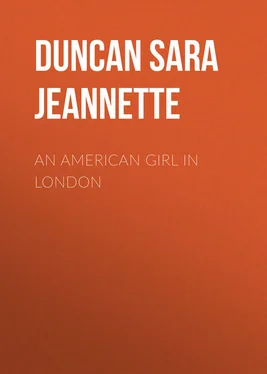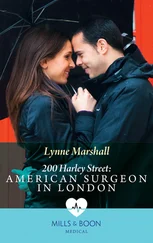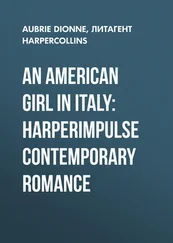Sara Duncan - An American Girl in London
Здесь есть возможность читать онлайн «Sara Duncan - An American Girl in London» — ознакомительный отрывок электронной книги совершенно бесплатно, а после прочтения отрывка купить полную версию. В некоторых случаях можно слушать аудио, скачать через торрент в формате fb2 и присутствует краткое содержание. Жанр: foreign_antique, foreign_prose, на английском языке. Описание произведения, (предисловие) а так же отзывы посетителей доступны на портале библиотеки ЛибКат.
- Название:An American Girl in London
- Автор:
- Жанр:
- Год:неизвестен
- ISBN:нет данных
- Рейтинг книги:4 / 5. Голосов: 1
-
Избранное:Добавить в избранное
- Отзывы:
-
Ваша оценка:
- 80
- 1
- 2
- 3
- 4
- 5
An American Girl in London: краткое содержание, описание и аннотация
Предлагаем к чтению аннотацию, описание, краткое содержание или предисловие (зависит от того, что написал сам автор книги «An American Girl in London»). Если вы не нашли необходимую информацию о книге — напишите в комментариях, мы постараемся отыскать её.
An American Girl in London — читать онлайн ознакомительный отрывок
Ниже представлен текст книги, разбитый по страницам. Система сохранения места последней прочитанной страницы, позволяет с удобством читать онлайн бесплатно книгу «An American Girl in London», без необходимости каждый раз заново искать на чём Вы остановились. Поставьте закладку, и сможете в любой момент перейти на страницу, на которой закончили чтение.
Интервал:
Закладка:
It was lovely up there – exactly like coming on deck after being in a stuffy little cabin in the steamer – a good deal of motion, but lots of fresh air. I was a little nervous at first, but as nobody fell off the tops of any of the other 'buses, I concluded that it was not a thing you were expected to do, and presently forgot all about it looking at the people swarming below me. My position made me feel immeasurably superior – at such a swinging height above them all – and I found myself speculating about them and criticising them, as I never should have done walking. I had never ridden on the top of anything before; it gave me an entirely new revelation of my fellow-creatures – if your monarchical feelings will allow that expression from a Republican. I must say I liked it – looking down upon people who were travelling in the same direction as I was, only on a level below. I began to understand the agreeableness of class distinctions, and I wondered whether the arrangement of seats on the tops of the 'buses was not, probably, a material result of aristocratic prejudices.
Oh, I liked it through and through, that first ride on a London 'bus! To know just how I liked it, and why, and how and why we all like it from the other side of the Atlantic, you must be born and brought up, as most of us have been, in a city twenty-five or fifty years old, where the houses are all made of clean white or red brick, with clean green lawns and geranium beds and painted iron fences; where rows of nice new maple-trees are planted in the clean-shaved boulevards, and fresh-planed wooden sidewalks run straight for a mile or two at a time, and all the city blocks stand in their proper right angles – which are among our advantages, I have no doubt; but our advantages have a way of making your disadvantages more interesting.
Having been monarchists all your lives, however, you can't possibly understand what it is to have been brought up in fresh paint. I ought not to expect it of you. If you could, though, I should find it easier to tell you, according to my experience, why we are all so devoted to London.
There was the smell, to begin with. I write 'there was,' because I regret to say that during the past few months I have become accustomed to it, and for me that smell is done up in a past tense for ever; so that I can quite understand a Londoner not believing in it. The Hammersmith 'bus was in the Strand when I first became conscious of it, and I noticed afterwards that it was always more pronounced down there, in the heart of the City, than in Kensington, for instance. It was no special odour or collection of odours that could be distinguished – it was rather an abstract smell – and yet it gave a kind of solidity and nutriment to the air, and made you feel as if your lungs digested it. There was comfort and support and satisfaction in that smell, and I often vainly try to smell it again.
We find the irregularity of London so gratifying, too. The way the streets turn and twist and jostle each other, and lead up into nothing, and turn around and come back again, and assume aliases , and break out into circuses and stray into queer, dark courts, where small boys go round on one roller skate, or little green churchyards only a few yards from the cabs and the crowd, where there is nobody but the dead people, who have grown tired of it all.
From the top of the Hammersmith 'bus, as it went through the Strand that morning, I saw funny little openings that made me long to get down and look into them; but I had my relation to think of, so I didn't.
Then there is the well-settled, well-founded look of everything, as if it had all come ages ago, and meant to stay for ever, and just go on the way it had before. We like that – the security and the permanence of it, which seems to be in some way connected with the big policemen, and the orderly crowd, and 'Keep to the Left' on the signboards, and the British coat of arms over so many of the shops. I thought that morning that those shops were probably the property of the Crown, but I was very soon corrected about that. At home I am afraid we fluctuate considerably, especially in connection with cyclones and railway interests – we are here to-day, and there is no telling where we shall be to-morrow. So the abiding kind of city gives us a comfortable feeling of confidence. It was not very long before even I, on the top of the Hammersmith 'bus, felt that I was riding an Institution, and no matter to what extent it wobbled it might be relied upon not to come down.
I don't know whether you will like our admiring you on account of your griminess, but we do. At home we are so monotonously clean, architecturally, that we can't make any aesthetic pretensions whatever. There is nothing artistic about white brick. It is clean and neat and sanitary, but you get tired of looking at it, especially when it is made up in patterns with red brick mixed in. And since you must be dirty, it may gratify you to know that you are very soothing to Transatlantic nerves suffering from patterns like that. But you are also misleading. 'I suppose,' I said to a workman in front of me as we entered Fleet Street, 'that is some old palace? Do you know the date of it?'
'No, miss,' he answered, 'that ain't no palace. Them's the new Law Courts, only built the last ten year!'
'The new Law Courts!' 'The Strand!' 'Fleet Street!' 'Ludgate Hill!' 'Cheapside!' and I was actually in those famous places, riding through them on a 'bus, part of their multitude. The very names on the street corners held fascination enough, and each of them gave me the separate little thrill of the altogether unexpected. I had unconsciously believed that all these names were part of the vanished past I had connected them with, forgetting that in London names endure. But I began to feel that I ought to be arriving. 'Conductor,' I said, as he passed, 'stop the 'bus, and let me get down at Half-Moon Street, Piccadilly.'
'We're goin' strait awai from it, miss; you get that red 'bus standin' over there – that'll taike you!'
So I went all the way back again, and on to my relation's, on the top of the red 'bus, not at all regretting my mistake. But it made it almost twelve o'clock when I rang the bell – Mrs. Portheris's bell – at the door of her house in Half-Moon Street, Piccadilly.
IV
FROM the outside I didn't think much of Mrs. Portheris's house. It was very tall, and very plain, and very narrow, and quite expressionless, except that it wore a sort of dirty brown frown. Like its neighbours, it had a well in front of it, and steps leading down into the well, and an iron fence round the steps, and a brass bell-handle lettered 'Tradesmen.' Like its neighbours, too, it wore boxes of spotty black greenery on the window-sills – in fact, it was very like its neighbours, except that it had one or two solemn little black balconies that looked as if nobody ever sat in them running across the face of it, and a tall, shallow porch, with two or three extremely white stone steps before the front door. Half-Moon Street, to me, looked like a family of houses – a family differing in heights and complexions and the colour of its hair, but sharing all the characteristics of a family – of an old family. A person draws a great many conclusions from the outside of a house, and my conclusion from the outside of my relation's house was that she couldn't be very well off to be obliged to live in such a plain and gloomy locality, with 'Tradesmen' on the ground-floor; and I hoped they were not any noisy kind of tradesmen, such as shoemakers or carpenters, who would disturb her early in the morning. The clean-scrubbed stone steps reflected very favourably, I thought, upon Mrs. Portheris, and gave the house, in spite of its grimy, old-fashioned, cramped appearance, a look of respectability which redeemed it. But I did not see at any window, behind the spotty evergreens, the sweet, sad face of my relation, though there were a hand-organ and a monkey and a German band all operating within twenty yards of the house.
Читать дальшеИнтервал:
Закладка:
Похожие книги на «An American Girl in London»
Представляем Вашему вниманию похожие книги на «An American Girl in London» списком для выбора. Мы отобрали схожую по названию и смыслу литературу в надежде предоставить читателям больше вариантов отыскать новые, интересные, ещё непрочитанные произведения.
Обсуждение, отзывы о книге «An American Girl in London» и просто собственные мнения читателей. Оставьте ваши комментарии, напишите, что Вы думаете о произведении, его смысле или главных героях. Укажите что конкретно понравилось, а что нет, и почему Вы так считаете.












